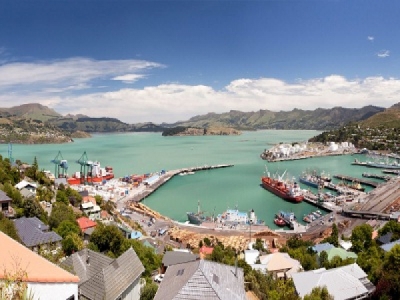
Posted on May 11, 2017
By Chris Hutching, stuff
Ngai Tahu is calling for a $1 million bond from Lyttelton Port Company to improve the environment while it dredges a deeper channel through the harbour.
The port (LPC) wants to deepen the shipping channel from 12.5 metres to 14.5m to cater for large ships that can carry 10,000 containers. Without it, the port says it may become a “feeder” to other main ports, which would affect the Canterbury economy.
The tribe wants LPC’s resource consent to include a condition it improve mahinga kai (traditional food sources).
Ngai Tahu scientist and environmental advisor Tasman Gillies told a hearings panel in Christchurch that LPC needed to do more research on disturbing sediment, offer a performance bond and improve harbour food gathering.
Over the years, the amount of seaweed in the harbour reduced. Conger eels holes and fishing spots filled with sediment, Gillies said.
The expanded channel and the new spoil grounds would further degrade the harbour, Gillies said.
Mitigation should include monitoring the contamination, education workshops and the use of an LPC ship to access mahinga kai, Gillies said.
Re-seeding shellfish, restoring seaweed and reducing sediment through planting “should be a primary focus”.
Honorary fisheries officers, which R?paki has had since 1997, would improve compliance, Gillies said.
Ad Feedback
Ngai Tahu lawyer Mark Christensen said Lyttelton Port was not showing leadership, which was a contrast to Tauranga and Otago harbour dredging projects.
Christensen asked the panel to adjourn the hearing until LPC properly monitored sediment.
Failure to get this right might mean “substantial and irremediable adverse effects”, Christensen said.
Christensen rejected LPC’s claim that moving the sediment disposal area further out to sea represented a “net gain” to mahinga kai.
He said consent should never have been given for it, nor should LPC be allowed use a site near Godley Head as a back-up.
Christensen asked for the consent to be reduced from 35 to 25 years, with independent reviews every five years.
LPC lawyer Jo Appleyard told the panel there was no legal requirement to provide an environmental gain. She said the consent panel could not decline applications on those grounds.
Appleyard said LPC showed a commitment to improving mahinga kai by taking the dispersal grounds further out of the harbour.
The dredging was driven by increasing exports in bigger ships.
Dredging would stop if sediment plumes were greater than modelled, Appleyard said.
“It is accepted that there will always be some uncertainty associated with a project of this nature … however, it has reduced uncertainty to an acceptable level,” Appleyard said.
Source: stuff





